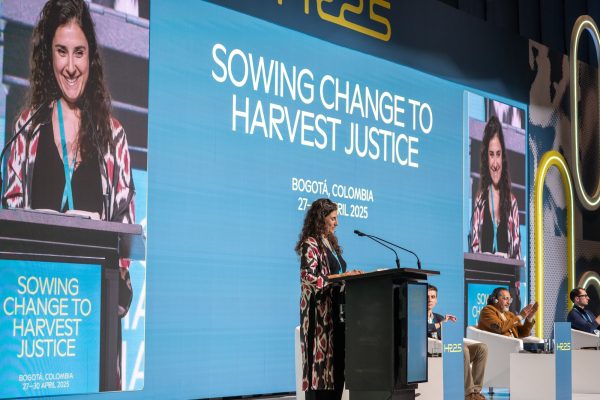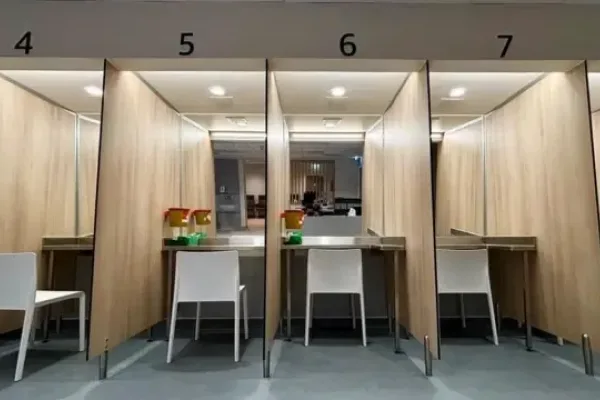21st September 2022
A gathering of the United Nations (UN) Commission on Narcotic Drugs (CND) is taking place this week in Vienna. The CND is the key UN decision-making body, overseeing the implementation of drug control internationally under the three drug control treaties (1961, 1971 and 1988). For more background see the IDPC resource pages.
The CND produces 10 year strategies, most recently the ministerial declaration in 2019. Thematic discussions take place every autumn (the ‘intersessional’ CND meetings between the main gathering every spring). This year’s discussions addressed challenges identified by the 'taking stock' paragraph of the declaration.
The relevant paragraph identifies how 'responses not in conformity with the three international drug control conventions and not in conformity with applicable international human rights obligations pose a challenge to the implementation of joint commitments based on the principle of common and shared responsibility'.
This leads to a very unusual and interesting debate in the CND context, necessarily addressing human rights abuses committed in the name of international drug control, and treaty issues related to cannabis (and wider drug) legalisation and regulation for non-medical uses.
These are deeply contentious and polarising issues at the UN, pitching member states guilty of ‘drug war’ human rights abuses against those determined to defend human rights, and pragmatic reform-oriented member states against more dogmatic punitive prohibitionist voices.
The fact that these issues are being debated is both welcome and important in an environment that has long marginalised them, and it is striking how with increasing numbers of reform-minded member states, institutional and civil society voices are changing the discourse in such a positive way.
Transform has ECOSOC special consultative UN status, meaning Transform's Senior Policy Analyst was able to make a short civil society statement during the debate - copied below.
‘My name is Steve Rolles, I am the Senior Policy Analyst for Transform Drug Policy Foundation, a UK based charity and NGO seeking more just and effective drug policies in the UK and around the world. Thank you for this opportunity to address the CND today.
More and more jurisdictions are implementing or actively exploring the legal regulation of cannabis markets for non-medical or recreational adult use. For the UN drug control institutions this is not an issue that can be marginalised or ignored any longer as somehow being the action of a rogue jurisdiction.
Such reforms are now being implemented or actively explored in multiple jurisdictions and member states, on every continent. We are now approaching half a billion people living in jurisdictions with legally regulated cannabis markets for non-medical adult use.
Certainly this raises important questions about what best practice regulation should look like, and how we can learn lessons from alcohol, tobacco and pharmaceutical regulation. It also raises important questions about international trade and sustainable development, and of course, it raises a series of questions about the future of the UN drug control treaty framework.
The global consensus around the prohibition of cannabis for non medical use is now decisively fracturing. The trend towards formally regulated markets is accelerating - as more and more jurisdictions critically evaluate the failings of the past and growing evidence that responsible regulation can help deliver on the treaty aspiration to protect and enhance the ‘health and welfare’ of humankind.
It is this inescapable reality of accelerating change in approaches to cannabis regulation that must be the basis of discussions in high level multilateral forums moving forward.
Certainly, the cannabis debate remains challenging and contentious - often characterised by strongly held and polarised positions. But if the CND, and other relevant UN entities, cannot meaningfully engage with the reality of change already happening across the world, then they will forfeit their ability to influence and guide the reform process in ways that can support our shared aspirations of the UN charter, and of the `Sustainable Development Goals.
As the UNODC has noted, the drug treaties are not ‘written in stone’. A range of mechanisms exists for treaties to evolve and modernise in response to changing circumstances, new evidence, and shifting political realities.
The need for such evolution and reform of the treaties could hardly be clearer than on this issue - where many member states have already felt compelled to move, albeit reluctantly, into situations of technical noncompliance with specific treaty obligations.
The possible pathways for such a modernisation process have been detailed by numerous civil society voices and reports.
They include options for individual member states - such as withdrawal from a treaty, or withdrawal and re-accession with a reservation.
Options for a group of member states such as inter se treaty modification,
or, Options based on consensus within existing multilateral institutions such as treaty amendment, treaty modification, or replacement of the current treaties with a new and more flexible treaty framework that is fit for purpose in the modern era.
In what are uncharted waters in the history of international drugs control - it is not clear which path to modernisation we will ultimately adopt. But, if the CND does not engage with this vital discussion, and instead continues to entrench around inflexible and condemnatory positions of the past that no longer meet the needs of a growing number of member states, the international drug control system risks drifting slowly into irrelevance as more and more member states unilaterally, or acting in concert, distance themselves from its rigid rules.
On the important drug related issues of the day, citizens and member states look to the CND and UN institutions for normative guidance. This much needed leadership cannot be achieved through entrenchment and finger wagging.
It requires an open minded and pragmatic dialogue between relevant stakeholders; member states, UN institutions, and civil society expertise - including the voices of people who use or produce illegal cannabis. This is the only way that challenges such as this can be resolved, and the exacerbation of existing tensions be avoided.'
For a more detailed discussion of the challenges and options for reform relating to cannabis regulation and the UN drug control treaties read section 3g in Transform’s recently updated book ‘How to Regulate Cannabis: A Practical Guide’ (available to buy in print or a free pdf download).
Take
action
Support transform
The time is right for real reform of our drug laws – and you can help. Please support us by giving what you can.




